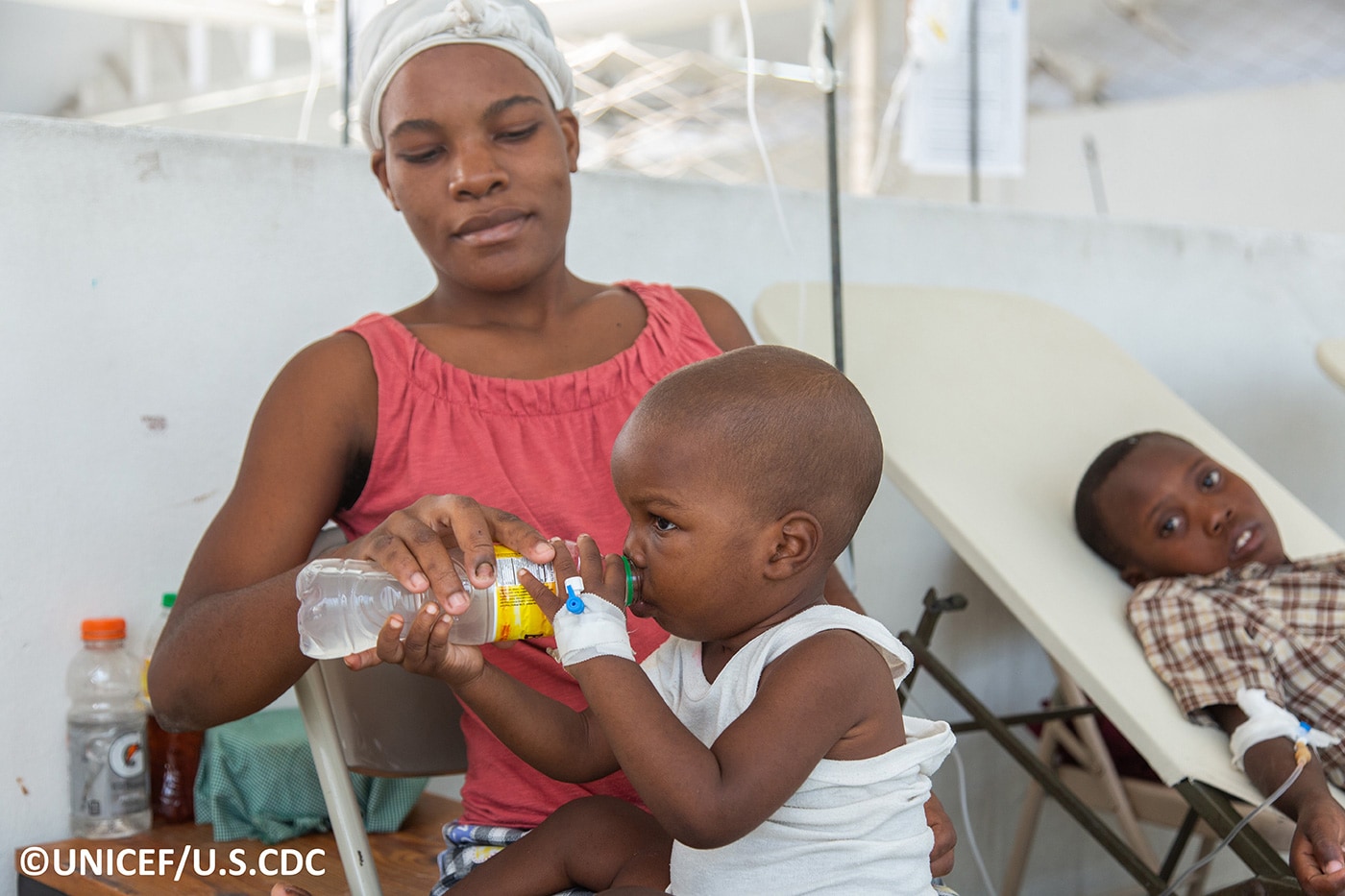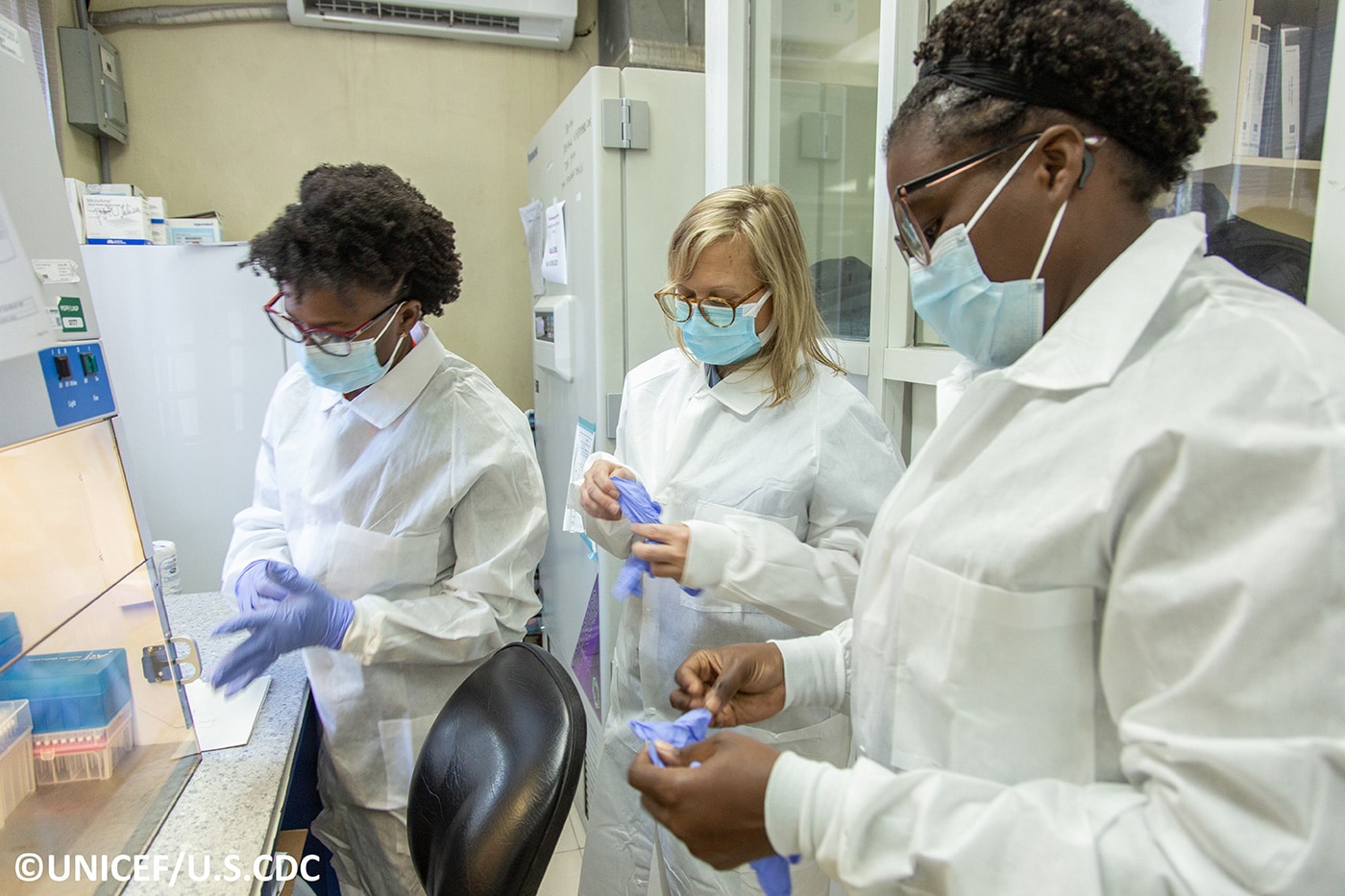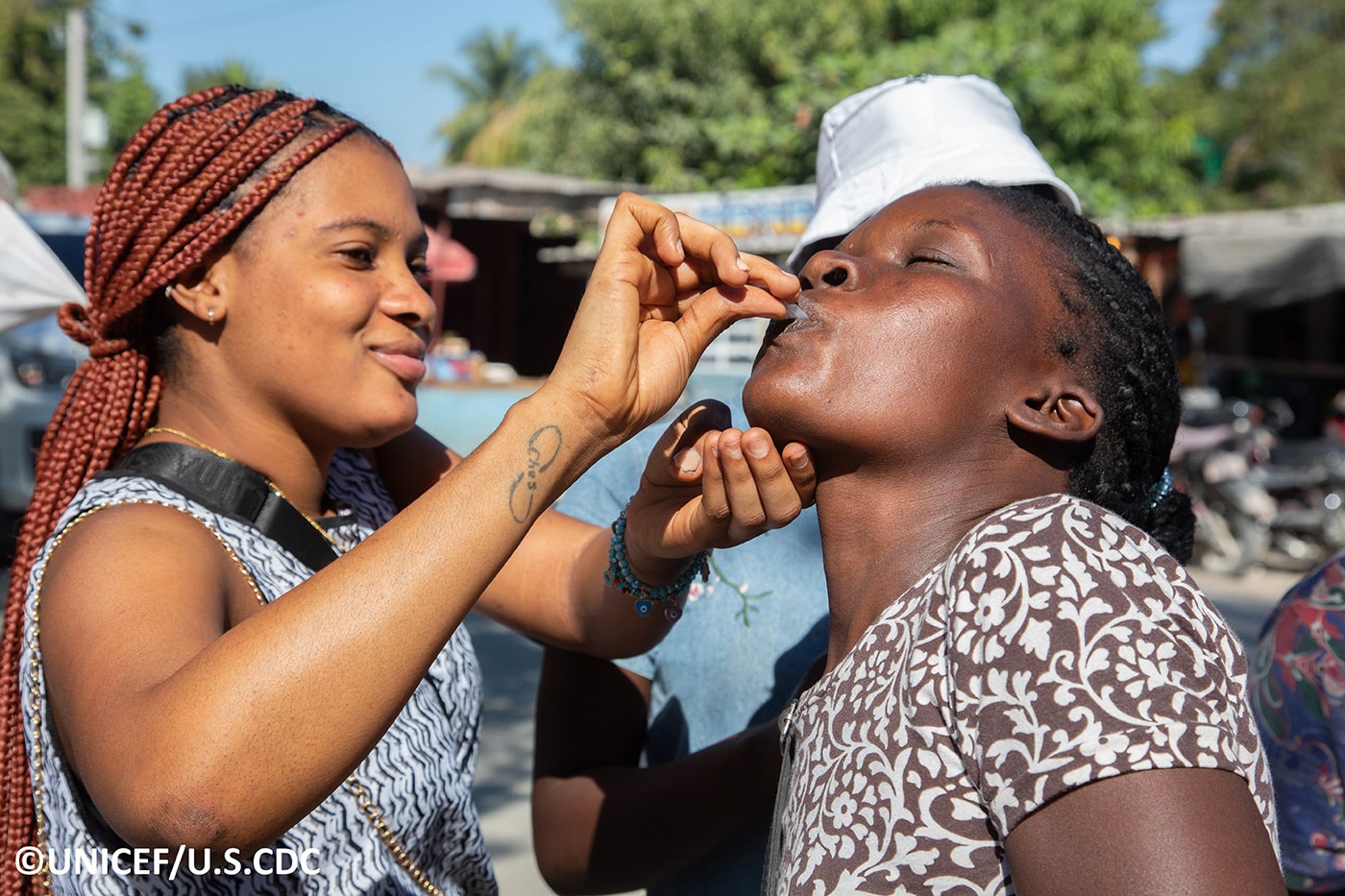Photo Essay: Cholera Response Work in Haiti
Summary
- After three years without a reported cholera case and six months into the World Health Organization’s process to declare the country cholera free, cholera cases were confirmed among children in the largest informal settlement in Haiti in October 2022.
- Cholera cases spread to nearly all departments of the country by the end of 2022.
- CDC led the interagency U.S. response, in close collaboration with the government of Haiti, to provide technical assistance and support in surveillance/laboratory capacity, vaccination, treatment and case management, risk communication and community engagement, and water, sanitation and hygiene.

A young child receives oral rehydration therapy, a critical therapy, at a cholera treatment center in Haiti. CDC and its partners are working to provide adequate and timely case management to those affected by the cholera outbreak. ©UNICEF/U.S.CDC/UN0771656/Rouzier

CDC microbiologist Maryann Turnsek (center) works with staff at the molecular biology department of the National Public Health Laboratory of Haiti to enhance the laboratory's ability to detect and respond to cholera cases. Strengthening laboratory capacity, which refers to a laboratory's ability to perform tests accurately and promptly, is a key component of the outbreak response. By providing technical assistance to improve laboratory resources, equipment, and personnel training, CDC and its partners are helping to improve disease detection and response efforts in Haiti. ©UNICEF/U.S.CDC/UN0771524/Rouzier

A healthcare worker administers an oral cholera vaccine to a patient. Targeted vaccine campaigns are part of the comprehensive, multisectoral approach to end the current cholera outbreak in Haiti. CDC and its partners are working closely with the Haitian government to ensure the vaccine is distributed to those who need it most. ©UNICEF/U.S.CDC/UN0771553/Rouzier

Community health workers educate residents on cholera prevention and hygiene practices. Risk communication and community engagement are critical components of the response to the outbreak. CDC and its partners are working with local stakeholders to engage communities and promote prevention strategies. ©UNICEF/U.S.CDC/UN0771600/Rouzier

A worker fills water containers from a mobile tanker that provides clean drinking water to families in Haiti’s capital. Access to clean water and sanitation is essential to prevent the spread of cholera. CDC and its partners are supporting efforts to improve the water, sanitation, and hygiene (WASH) infrastructure in Haiti, which is crucial for ending the current cholera outbreak and preventing future outbreaks. ©UNICEF/U.S.CDC/UN0771536/Rouzier

CDC WASH Specialist Taylor Osborne (left) met with Teddy Laroche (center) and Evenel Thermidor (right) from the National Directorate of Drinking Water and Sanitation and the Regional Office of Drinking Water and Sanitation in the North to assess whether the community has access to safe drinking water. CDC staff are collaborating with local partners to monitor water quality and provide clean drinking water to affected areas. Such collaboration and coordination between CDC, the Haitian government, and implementing partners are crucial to ensuring an effective WASH response. Photo Credit: Ken Chen, CDC.